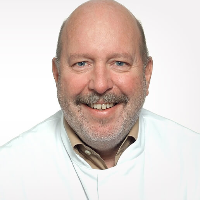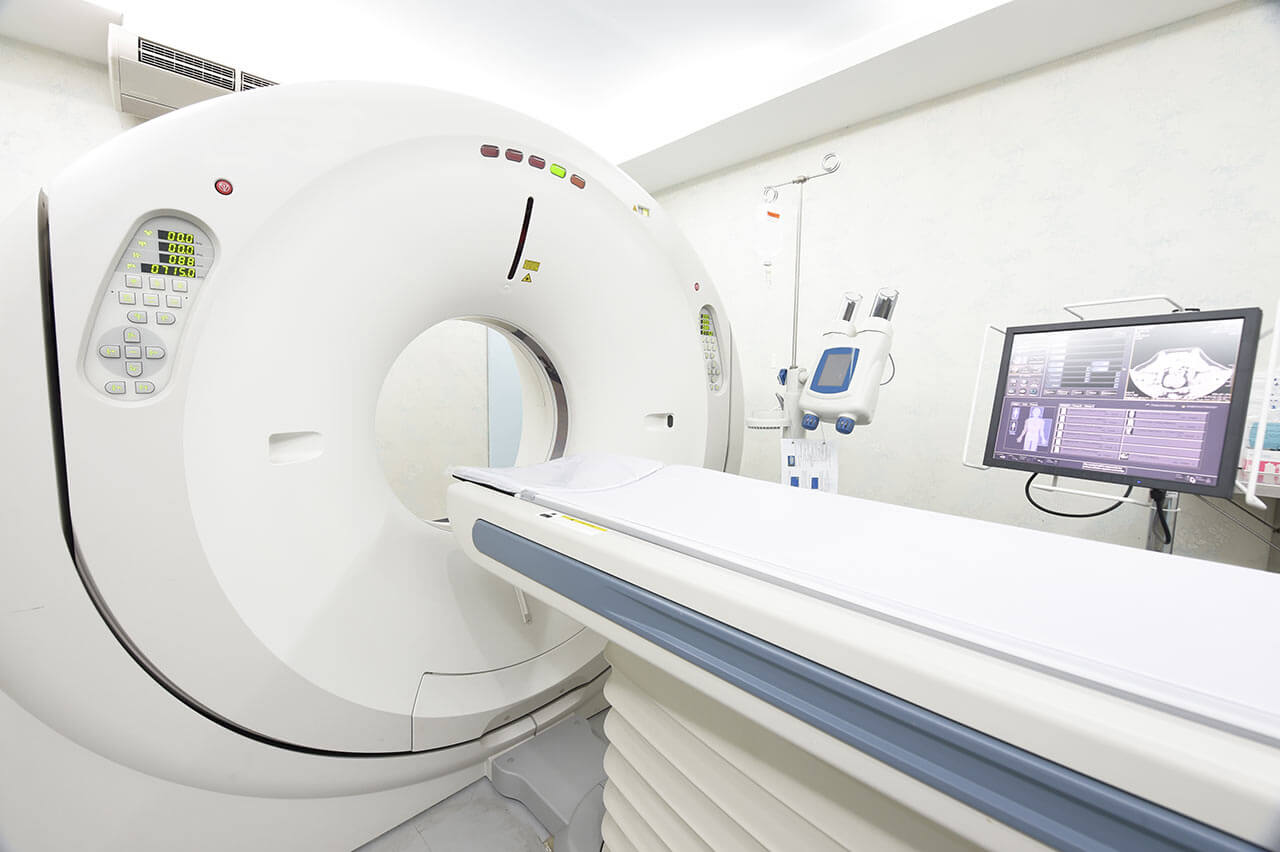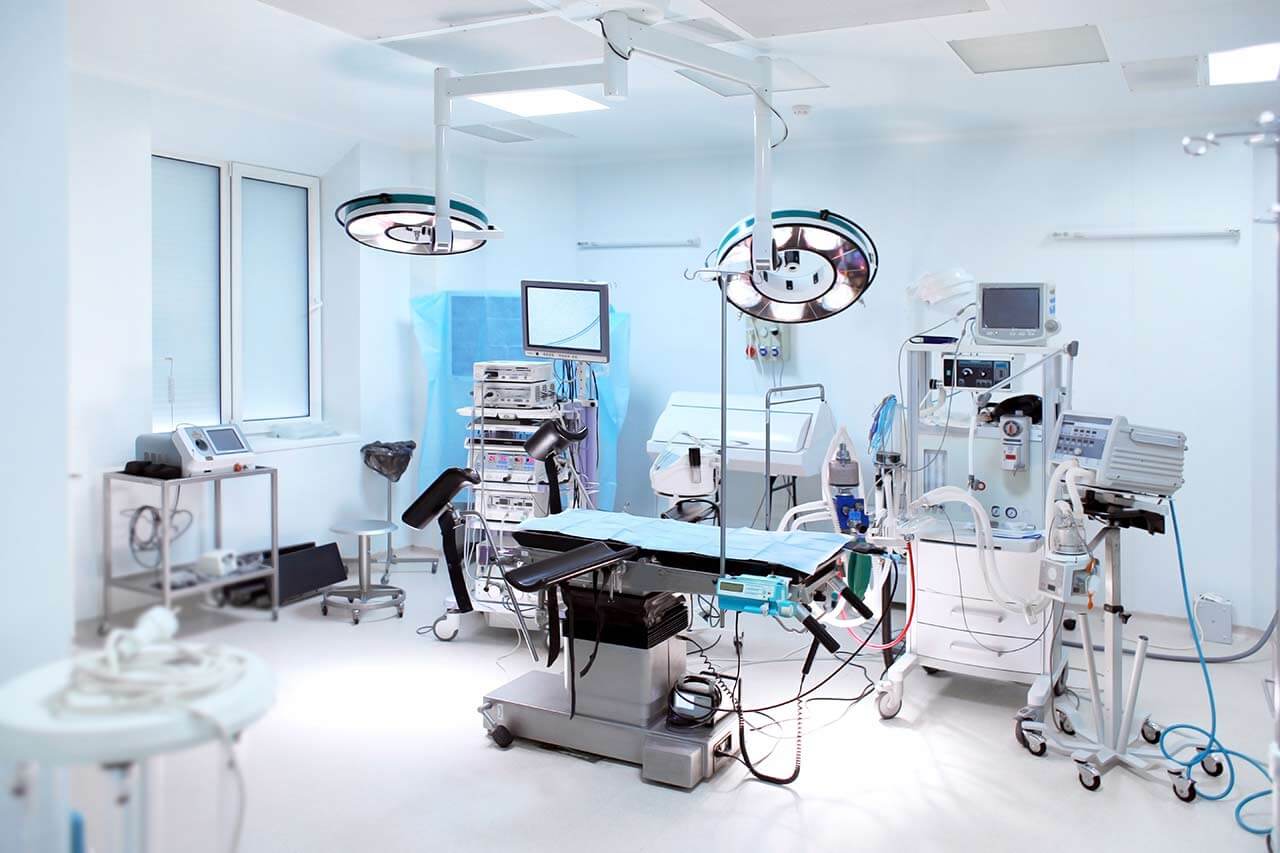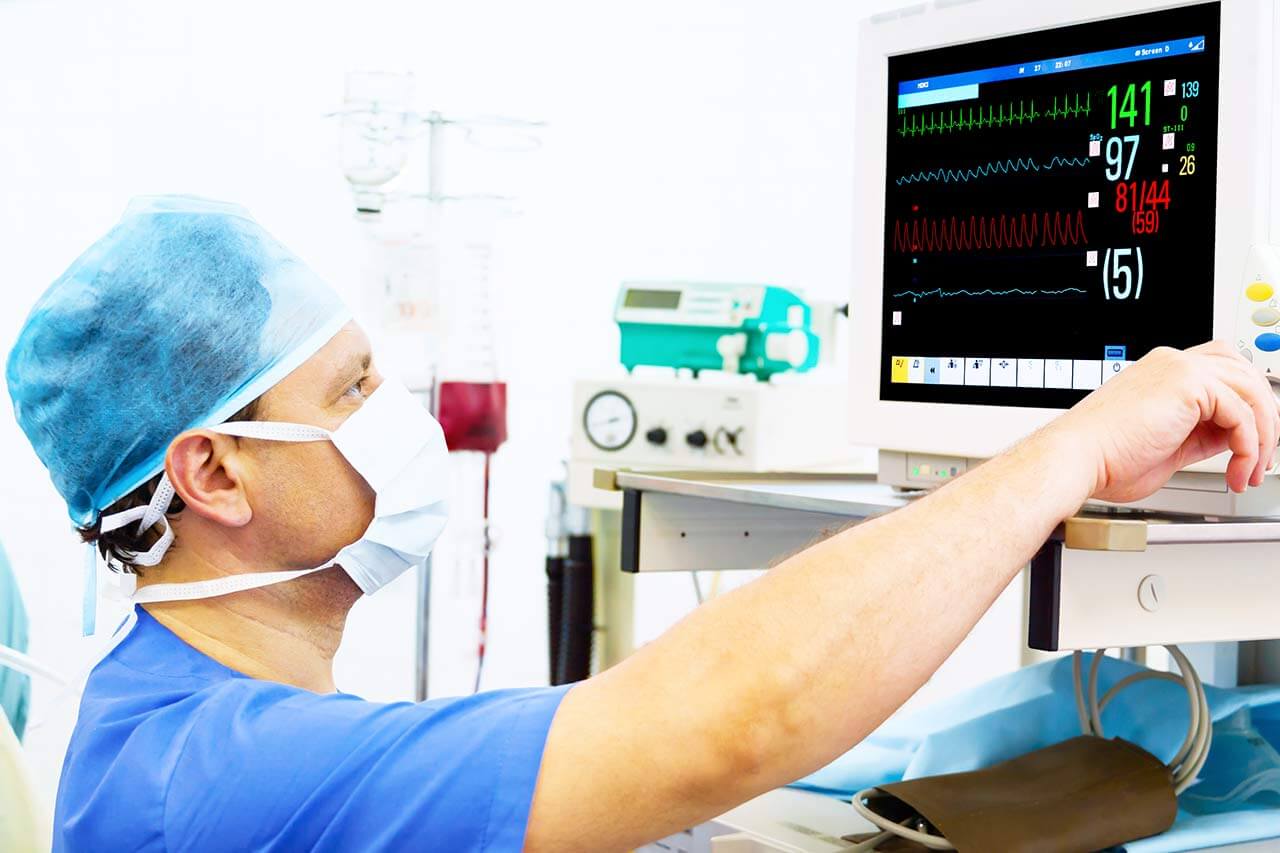
The program includes:
- Initial presentation in the clinic
- clinical history taking
- review of medical records
- physical examination
- ACTH stimulation test
- Insulin-induced hypoglycemia test
- laboratory tests:
- complete blood count
- general urine analysis
- biochemical analysis of blood
- TSH-basal, fT3, fT4
- cortisol and ACTH
- testosteron
- fkmljcnthjz
- inflammation indicators
- indicators blood coagulation
- ultrasound of the abdomen
- CT/MRI scan of the abdomen
- consultation of related specialists
- symptomatic specific treatment
- the cost of essential medicines and materials
- nursing services
- control examinations
- full hospital accommodation
- developing of further guidance
Required documents
- Medical records
- Results of hormone blood tests (if available)
Service
You may also book:
 BookingHealth Price from:
BookingHealth Price from:
About the department
The Department of Adult and Pediatric Diabetology at the Heart and Diabetes Center NRW Bad Oeynhausen offers the full range of services for the diagnostics and treatment of all types of diabetes mellitus, including rare forms of this pathology. The department annually provides top-class medical services to about 2,500 patients from various age groups. To date, there are no treatment methods that could lead to a complete cure for diabetes mellitus, so the primary goal of each department's doctor is to control the pathology and provide a patient with diabetes mellitus with a high quality of life. In addition, an important task of the department is the treatment of early and late complications of diabetes mellitus. Of particular interest is the provision of medical care to patients with cardiovascular complications caused by diabetes mellitus. The department has gained a reputation as one of the leading German medical facilities specializing in the treatment of patients with vascular and cardiac diseases caused by diabetes mellitus. The outstanding quality of medical services is evidenced by the certificate of the German Diabetes Society (DDG) and other prestigious certificates. The department's doctors are always open to dialogue with their patients and support them in every possible way during the course of treatment. The Head Physician of the department is Prof. Dr. med. Dr.h.c. Diethelm Tschöpe.
An interdisciplinary competent team, including specialists in endocrinology, diabetology, gastroenterology, cardiology, nutrition, experts in diabetes counseling and training, psychologists, and specially trained nursing staff, is at the patients' service to provide comprehensive medical care of the highest level. All specialists work in a coordinated manner, cooperatively examining patients with diabetes mellitus and providing them with the necessary medical care. Diabetes mellitus is associated with a high risk of developing severe pathologies of the cardiovascular system (for example, coronary heart disease, heart failure, cardiomyopathies, or atrial fibrillation), so the department's specialists cooperate closely with cardiologists and cardiac surgeons. Doctors in these fields are responsible for diagnosing the heart in patients with diabetes mellitus and, if necessary, carrying out treatment for the detected heart pathologies.
The department's medical team devotes a significant amount of time to thorough patient diagnostics. Doctors use the most modern methods to detect endocrinological, gastroenterological, and other diseases. An individually tailored treatment plan is developed based on the diagnostic results. Patients require a partial or total modification of their lifestyle to achieve positive dynamics. This may include dietary and physical activity modifications. The department holds special training and consultations where they learn to cope with the difficulties caused by the disease, eat healthy food, and independently control blood glucose levels. Thanks to working with psychologists, patients also receive information on how to accept their diagnosis and get the most positive emotions from life.
People with diabetes mellitus often have poor wound healing. The problem is exacerbated by the fact that patients often notice the wound only at an advanced stage due to reduced sensitivity. The department has highly qualified specialists in wound healing who take care of early diagnostics and targeted treatment of foot problems caused by diabetes mellitus. As a rule, several treatment methods are combined and prescribed based on a specific clinical case. The department's therapeutic options in this field include maggot therapy, vacuum therapy, platelet-rich plasma therapy, laser therapy, negative pressure therapy, infusion therapy, and surgical interventions. The department's doctors achieve outstanding results in preserving the affected limbs and stimulating the healing process of chronic wounds.
Many patients with diabetes mellitus also develop other endocrine pathologies, such as thyroid diseases and osteoporosis. Patients with diabetes mellitus are 12 times more likely to have a hip fracture than people without metabolic disorders. Hypothyroidism (thyroid hormone deficiency) can increase the action of insulin and increase the risk of hypoglycemia, while hyperthyroidism (excess thyroid hormones) leads to suppression of insulin action and an increase in blood glucose levels. In addition, high blood glucose levels also affect the production of sex hormones in men and women. Patients with diabetes mellitus need to regularly consult with endocrinologists and undergo check-ups that will help them detect problems with the endocrine glands in a timely manner and effectively eliminate them. The department's endocrinologists carry out such tests as osteodensitometry, skeletal scintigraphy, ultrasound scans, color Doppler ultrasonography, laboratory hormone tests, X-ray scans, and others. Drug therapy is commonly used to treat endocrine disorders.
The department specializes in the diagnostics and treatment of the following types of diabetes mellitus:
- Type 1 diabetes mellitus
- Type 2 diabetes mellitus
- Gestational diabetes mellitus
- Latent autoimmune diabetes in adults (LADA)
- Maturity-onset diabetes of the young (MODY)
- Rare forms of diabetes mellitus
- Complications of diabetes mellitus, such as heart attacks, strokes, blindness, kidney dysfunction, thyroid diseases, and gastrointestinal disorders
- Other forms of the pathology
The department's main clinical activities include:
- Diagnostics and treatment of all forms of diabetes mellitus
- Diagnostics and treatment of secondary and concomitant diseases in diabetes mellitus
- Assessment of the risk of developing cardiovascular diseases and treatment of cardiovascular diseases within the integrated medical care
- Modern therapeutic approaches to accelerate wound healing in patients with diabetic foot syndrome
- Treatment of neuropathy and circulatory disorders caused by diabetes mellitus
- Diagnostics and treatment of endocrine and gastroenterological diseases caused by diabetes mellitus
- Individual counseling and training of patients with diabetes mellitus on a new lifestyle, self-monitoring of blood glucose levels, and proper nutrition
- Practical recommendations for lifestyle modifications
- Psychological support
- Other medical services
Curriculum vitae
Current Positions
- Head of the Department of Endocrinology and Diabetology at the Ruhr University in Bochum.
- Head Physician of the Department of Adult and Pediatric Diabetology at the Heart and Diabetes Center NRW Bad Oeynhausen.
- Chairman of the Foundation for Diabetics with Cardiac Diseases in the German Diabetes Foundation.
Professional Career
- 1984 Research Fellow, Clinical Department of the German Diabetes Research Institute at the Heinrich Heine University Duesseldorf.
- 1992 Habilitation and Venia Legendi in Internal Medicine.
- 1994 Senior Clinical Physician, Duesseldorf.
- 2002 Recognition of Quality in Endocrinology (RQE); Instructor of the European Board of Endocrinology (UEMS).
- 2003 Department of Diabetology and Endocrinology at the Ruhr University Bochum; Deputy Medical Director, Heart and Diabetes Center NRW Bad Oeynhausen.
- 2006 Member of the Executive Board at the Center for Innovation in Health Economics (ZIG); Scientific Advisory Board of the International Prevention Organization (IPO).
- Since 2009 Head Physician of the Department of Adult and Pediatric Diabetology at the Heart and Diabetes Center NRW Bad Oeynhausen.
Honors, Awards, and Memberships
- 1993 Research Award from Anna Wunderlich and Ernst Juehling Foundation.
- 1998 Ferdinand Bertram Prize from the German Diabetes Society (DDG).
- 1999 Chairman of the Board of Trustees "The Diabetic Heart Disease" (DHD).
- 2003 Assessor and Instructor of the Section of Endocrinology at the Medical Association of Westphalia-Lippe.
- 2007 Honorary Doctorate, University of Cluj-Napuca, Romania.
- 2010 Fellowship of the European Society of Cardiology (FESC).
- 2010 Scientific Advisory Board of the German Heart Foundation (DHS).
- 06.2013 - 12.2016 Chairman of the Telemedicine Commission, German Society of Internal Medicine (DGIM).
- 2014 Chairman of the North Rhine-Westphalia Society of Internal Medicine (RWGIM).
- 2016 Deputy Chairman of the Steering Committee of the Academy of Medical Education of the Medical Association of Westphalia-Lippe and the Association of Statutory Health Insurance Physicians Westphalia-Lippe.
Scientific and Clinical Interests
- Diagnostics of thrombophilia in patients at risk of vascular disease.
- Degenerative vascular diseases and their pharmacological prevention.
- Non-invasive vascular diagnostics.
- Multimodal and individualized therapy concepts.
- Analysis of medical services in the field of metabolic, cardiovascular, and vascular diseases.
Member of Editor Boards
- Platelets.
- International Journal of Clinical Practice.
- Diabetes, Metabolism and Heart (Editor-in-Chief).
- As well as publisher and reviewer of numerous international scientific journals in related fields.
Photo of the doctor: (c) Herz- und Diabeteszentrum NRW, Bad Oeynhausen
About hospital
According to the prestigious Focus magazine, the Heart and Diabetes Center NRW Bad Oeynhausen ranks among the top German hospitals in the area of its specialization!
The center is one of the leading medical facilities specializing in the treatment of cardiovascular diseases and diabetes mellitus at the international level. About 37,000 patients are treated here every year, while approximately 14,700 of them receive inpatient medical care. The highly qualified specialists at the center perform about 6,400 heart surgeries and about 10,000 cardiac catheter-based examinations, as well as about 800 electrophysiological studies, and provide medical care to more than 1,000 patients with congenital heart defects annually. The doctors are justifiably proud of their unique clinical experience and successful treatment outcomes, which contribute to the excellent reputation of the medical center in Europe.
The center has been a university hospital at Ruhr University Bochum since 1989. The center's staff takes an active part in research activities and the training of medical students. The scientific knowledge that specialists receive in the in-house Clinical Research and Development Center is used to continuously improve treatment outcomes.
The high-tech infrastructure of the center deserves special attention. There are one pediatric and six adult cardiac catheterization laboratories, eight standard operating rooms, and one state-of-the-art hybrid operating room. In addition, the center has a Sleep Laboratory, and thanks to the National School of Applied TeleHealth, remote medical care is also available here. The medical facility uses innovative diagnostic tests, such as MRI and PET-CT scans, surgical techniques, and conservative therapy methods. The quality of all services provided meets the latest standards of international medicine.
At the center of all the efforts of medical workers is a person with their own needs and personal experiences. The involvement of the patient's family and other close people in this process is an important part of the treatment. This concept has become the key to the hospital's success and recognition.
The center is recognized as one of the best in the European medical arena in the field of diagnostics and treatment of arterial hypertension (certification from the European Society of Hypertension), is included in the list of medical facilities of the German Diabetes Society, and is certified as the Adult Congenital Heart Disease Center (EMAH certification). In addition, the center has been regularly certified by the Cooperation for Transparency and Quality in Healthcare (KTQ) since 2008. The medical facility is certified by the German Cardiac Society (DGK) in the fields of transcatheter aortic valve implantation, treatment of heart failure, and atrial fibrillation. All these achievements speak for themselves, which is why patients confidently trust their health to the specialists at the Heart and Diabetes Center NRW Bad Oeynhausen.
Photo: (с) depositphotos
Accommodation in hospital
Patients rooms
The patients of the Heart and Diabetes Center NRW Bad Oeynhausen live in comfortable rooms equipped with all modern conveniences. All patient rooms are distinguished by their modern interior and high level of comfort. The standard room furnishing includes an adjustable bed, a bedside table, a wardrobe, a telephone, and a TV. The large windows of the patient rooms offer beautiful views of the natural landscape.
The center also offers single enhanced-comfort rooms with a stylish interior and a hotel atmosphere. Such rooms are additionally equipped with a mini-fridge, a safe, and a mini-bar. The bathroom has all the necessary toiletries, changeable towels, and a bathrobe.
Meals and Menus
The patients of the center are offered tasty, varied, and healthy meals three times a day: breakfast, lunch, and dinner. If, for some reason, you do not eat all the food, you will be provided with an individual menu.
Patients living in enhanced-comfort rooms are provided with a special menu with a wide selection of dishes, as well as fresh fruits, coffee, tea, and pastries.
Further details
Standard rooms include:
Accompanying person
Your accompanying person may stay with you in your patient room or at the hotel of your choice during the inpatient program.
Hotel
You may stay at the hotel of your choice during the outpatient program. Our managers will support you for selecting the best option.




